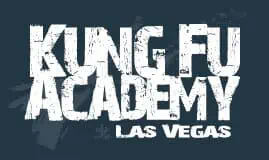Research karate schools in your area. Schedule a trial class. Purchase or borrow karate gear. Attend classes regularly. Practice outside of class. Set goals.
Karate is an awesome endeavor that can be learned at any age! Start your training with these essential tips on karate for beginners.
Karate Basics
Karate for beginners
So, you're thinking about stepping into the world of karate, huh? Maybe you're a beginner or just need some extra guidance. Don't worry, we got you covered. Check out this advice on karate for newbies
1. Understand Karate
Karate is Japanese for 'empty hands,' and today it is among the most famous martial arts in the world.
Before you jump in, it's essential to understand the whole idea behind karate and other martial arts. It's about confidence, respect, and building a strong mind and body. It's about peace, not fighting, bro. Yeah, it's for those unavoidable conflicts life throws at you.
Watch loads of videos and read articles like this to get the gist of it. Karate history goes deep, and understanding its roots will help you see why certain moves are done in specific ways.
And don't forget to scope out a karate class before joining. Each group has its vibe, and every sensei has their style. Observing a class will help you decide if it's the right fit for you.
2. Be respectful
If peace is the first principle of karate, respect is the second. It's all about preventing conflicts and keeping things cool. You'll see it in action from day one at the dojo.
Address your teacher as Sir, Ma'am, or Sensei. Most instructors appreciate that courtesy. And remember, a martial arts school is called a dojo or dojang, meaning training hall.
The bow isn't about submission; it's a two-way sign of respect. You bow, they bow back – simple as that. Bow when entering and leaving the training hall, and always be polite and respectful.
Karate Beginners
3. Be open to learning
Don't come in with preconceived notions about martial arts based on TV and movies. When your sensei tells you how to do something, listen and learn. Don't be that "I know, I know" guy who ends up messing it up.
Karate is a lifelong journey, man. There's always more to learn, so give it your all.
4. Expect to work hard
Karate is different from any other class or school. In some ways, it's more like a sport.
It's not about knowing answers, because there's no right answer to anything. It's about improvement. Even if you're good at something, you can always get better at it.
Bruce Lee once said "I fear not the man who has practiced 10,000 kicks once, but I fear the man who has practiced one kick 10,000 times." In other words, there's no such thing as too much practice.
One great tip about karate for beginners is to stretch. Karate is just like any other physical activity in that it helps to warm up first.
Stretching before and after any kind of workout offers a whole host of benefits for the body.
For karate, in particular, it's best to use stretches that require a wider range of movement. Not only will this prepare your whole body for physical activity, but it can also help prevent injuries.
Keep in mind, that injuries are going to happen occasionally, and there's nothing anyone can do to change that. However, the less often it happens, the better your experience is going to be.
5. It never ends
Martial arts are more than just hitting things. It's a philosophy that extends beyond the dojo. You'll find the discipline, respect, and personal growth affecting other areas of your life, most likely for the better.
Help others and give back to the community. Teaching martial arts can change lives and make the world a better place.
Karate For Beginners: Advice For Starting Out
Karate can be confusing for beginners, but remember, it's a philosophy and a lifestyle. Sure, you'll learn to fight, but through that process, you'll develop discipline and learn to deal with life's conflicts.
If you're curious about karate and other martial arts, especially in the Las Vegas area, hit up our site. We can start by explaining the differences between Kung Fu and karate. Now go on, embrace the journey
